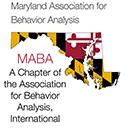Workshops
Calandra “Callie” Plattner, Ph.D., BCBA-D, LBA
Mosaic Pediatric Therapy
Cody Morris, Ph.D., BCBA-D, LBA
Salve Regina University
Featured Conference Speakers
Vivian Ibañez, Ph.D., BCBA-D
University of Florida
Nicole Rodriguez, Ph.D., BCBA-D
University of Nebraska Medical Center’s Munroe Meyer Institute
Faris Kronfli, Ph.D., BCBA-D
University of Florida
Daniel Cymbal Ph.D., BCBA-D
Georgia Southern University
Nathan “Nate” Call, Ph.D., BCBA-D
Marcus Autism Center
WORKSHOPS: THURSDAY, DECEMBER 5, 2024

9:00 am – 12:00 pm
Presenter: Callie Plattner, Ph.D., BCBA-D, LBA
BACB #: 1-08-4158
Event Type: Invited Workshop, 3 hrs.
CEU Eligibility: 3 credits /BACB & APA
Dr. Callie Plattner earned an MS in Applied Behavior Analysis from Auburn University under Dr. Jim Johnston’s supervision and a Ph.D. in Behavior Analysis from Endicott College under the guidance of Dr. Cynthia Anderson. She currently serves as Chief Clinical Officer at Mosaic Pediatric Therapy where she is responsible for elevating clinical services and operational performance. Dr. Plattner is well versed in board governance through her 11 years of service on the North Carolina Association for Behavior Analysis (NCABA) board, including two-time Past-President. She has also held a seat on the board of directors for the Association of Professional Behavior Analysts (APBA), served as a subject matter expert for the Behavior Analyst Certification Board (BACB) and the Council for Autism Service Providers (CASP). She has authored several book chapters and published in the Journal of Applied Behavior Analysis and Behavior Analysis in Practice, the latter for which she has served as a reviewer. Dr. Plattner is a behavior analyst who believes in the compassionate implementation of our science and has spent her career focused on building a better reputation for our field, establishing high standards for quality care, and improving training and mentoring opportunities for clinicians.
Workshop Title: Improving Collaboration and Engagement with Stakeholders Through the Use of Motivational Interviewing
Abstract: Ensuring alignment of goals, values and priorities for all stakeholders may be an important component in reaching meaningful outcomes for children with autism. Collaborating across disciplines in the working environment (Broadhead, 2015) and including parents in treatment planning (Taylor et al., 2019) may be skills which are overlooked in the training practices of BCBAs. Behavior Analysts may find themselves in dilemma’s where their recommendations are in conflict with other providers or caregivers which requires a specialized skill set to demonstrate collaborative and effective communication. Motivational Interviewing is an evidence-based approach that has been broadly used across helping professions (Magill et al., 2018) as a means of effectively identifying treatment goals, the rationale for desired behavior change and setting the occasion for effective follow through with treatment goals (Hettema & Hendricks, 2010; Lundahl et al., 2013). It may benefit BCBAs and psychologists to learn additional skills in the areas of effective collaboration and communication given the lack of training in this area and motivational interviewing could be a useful addition to BCBAs and psychologists’ professional repertoires (Plattner & Anderson, 2013). This workshop will address the challenges associated with establishing engagement with stakeholders and provide an introduction to motivational interviewing with practical applications which can assist in improving working relationships amongst BCBAs and psychologists and those with whom they collaborate. Participants will have the opportunity to assess and practice their skills in the areas of reflective and compassionate communication.
Learning Objectives:
1. Attendees will be able to identify at least 2 challenges associated with aligning goals, values and priorities with stakeholders and at least 3 reasons why addressing these challenges can be beneficial to client outcomes.
2. Attendees will be able to identify what motivational interviewing is and why it is an important approach for BCBAs and psychologists to use in their clinical practice.
3. Attendees will be able to describe three core skills within motivational interviewing and how to use them in the context of collaboration with stakeholders.
4. Attendees will assess their own skills across several assessment tools used within the field of motivational interviewing and identify areas for development.

1:00 pm – 4:00 pm
Presenter: Cody Morris, Ph.D., BCBA-D. LBA
BACB #: 1-16-23056
Event Type: Invited Workshop, 3 hrs.
CEU Eligibility: 3 credits (ETHICS CEUs)/ BACB & APA
Dr. Cody Morris is an Assistant Professor, Graduate Programs Director of Behavior Analysis, and Chair of the IRB at Salve Regina University. The overarching goal of Cody’s research and clinical focus is improving the practice of behavior analysis. This involves several topics, including client involvement in therapeutic decisions, assessment and treatment strategies for challenging behavior, and organizational systems. Cody has published works in prominent behavior analytic journals, including the Journal of Applied Behavior Analysis, Behavior Analysis in Practice, and the Journal of Organizational Behavior Management. He has served as a reviewer for multiple behavior analytic journals and a Guest Associate Editor for Perspectives on Behavior Science and Behavior Analysis in Practice. Currently, Cody is the Director of the Executive Board for the Rhode Island Association for Behavior Analysis and the Executive Producer and Host of Behavior Analysis in Practice- The Podcast.
Workshop Title: Toward a Further Understanding of Assent
Abstract: Arranging assent opportunities for clients is an increasingly common strategy to involve clients in therapeutic decisions within behavior analysis. The purpose of this workshop is to further advance the conceptualization and understanding of assent and assent practices by refining previous definitions and conceptualizations of assent and defining essential considerations for embedding assent into practice.
Learning Objectives:
1. Participants will be able to describe assent and the reason it is important.
2. Participants will be able to describe the critical aspects of assent.
3. Participants will be able to identify strategies for arranging assent procedures in practice.
CONFERENCE: FRIDAY, DECEMBER 6, 2024
8:45 am – 9:00 am
Presidential Address: Michelle Frank-Crawford, Ph.D., BCBA-D, LBA
Executive Council Update

9:00 am – 9:50 am
Presenter: Vivian Ibañez, Ph.D., BCBA-D
BACB #: 1-15-19872
Event Type: Invited Talk, 50 min
CEU Eligibility: 1 credit BACB/ .75 credit APA
Dr. Vivian Ibañez received her master’s degree in Behavior Analysis from the University of Maryland Baltimore County in 2014 and Ph.D. in Behavior Analysis from the University of Nebraska Medical Center under the mentorship of Dr. Cathleen Piazza, followed by postdoctoral training at the University of Florida (UF). Currently, she is a Research Assistant Professor in the Department of Psychology at UF and the Clinical Director of the Intensive Pediatric Feeding Disorders Program at the Florida Autism Center’s Specialty Clinic, in collaboration with the UF Health Center for Autism and Neurodevelopment. Before these roles, she developed her expertise in the assessment and treatment of severe feeding difficulties through various positions at the Kennedy Krieger Institute, Munroe-Meyer Institute, and Children’s Specialized Hospital. Dr. Ibañez’s research has focused on enhancing the effectiveness of behavior-analytic feeding treatments and facilitating the transfer of care from clinicians to caregivers. Expanding specialized services has also led to a passion for consumer advocacy, public policies affecting access to behavior-analytic feeding services, and training for practitioners in community-based settings. At present, Dr. Ibañez also serves on the Editorial Board of the Journal of Applied Behavior Analysis, the Board of Directors of the Association for Professional Behavior Analysts, and as a Member-at-Large for the Florida Association for Behavior Analysis Board of Directors.
Title: Behavior-Analytic Feeding Therapy: What Have We Learned?
Abstract: Piazza (2008) described the biological and social implications of feeding and provided an overview of specific intervention methods for children with feeding disorders. Sixteen years have elapsed since the publication of this paper, and the good news is that interventions based on applied behavior analysis remain well-supported. However, pediatric feeding practices have evolved in areas such as etiology, diagnosis, intervention, measurement of outcomes, and social validity. This presentation will expand on Piazza’s (2008) commentary with additional perspectives and propose new directions for consideration. Some of the data included in this talk will emphasize the importance of secondary analyses to improve the dissemination of features and outcomes of a behavior-analytic feeding approach. For example, there are many questions regarding the side effects of participation in behavioral feeding therapy. As such, two topics that will be discussed in this talk are a child’s social interactions with their feeding therapists throughout day-treatment services and how changes in oral intake impact other domains like toileting and oral hygiene. In sum, by reflecting on the history of behavior-analytic feeding therapy and considering the current landscape of questions from several communities, including caregivers, healthcare providers, and other scientists, this talk aims to provide data-based updates from several angles to foster a comprehensive understanding and advance the field further.
Learning Objectives:
1. Participants will be able to describe new measurement strategies to evaluate the social validity of behavioral feeding interventions
2. Participants will be able to describe the current challenges and possible solutions for dissemination of behavioral feeding interventions across scientific communities, caregivers, and healthcare providers.
3. Participants will be able to describe possible relations between participation in behavioral feeding therapy and other areas like social interactions, toileting, and oral hygiene.

10:10 am – 11:00 am
Presenter: Nicole Rodriguez, Ph.D., BCBA-D
BACB #: 1-09-5869
Event Type: Invited Talk, 50 min
CEU Eligibility: 1 credit BACB/ .75 credit APA
Dr. Nicole Rodriguez is the Director of the Early Intervention Program in the integrated Center for Autism Spectrum Disorders (iCASD) at the Munroe-Meyer Institute as well as a professor in, and Director of, the PhD program in Applied Behavior Analysis at the University of Nebraska Medical Center. She has received training at arguably some of the top institutions in which behavior analysis is taught and applied. This includes post-baccalaureate training in applied behavior analysis at the University of Florida, clinical and research training at the Johns Hopkins University School of Medicine’s Kennedy Krieger Institute, graduate training under the supervision of Dr. Rachel Thompson at the University of Kansas and Western New England University, and post-doctoral training under the mentorship of Dr. Wayne Fisher, where she currently resides at the Munroe-Meyer Institute. She has authored several book chapters and published peer-reviewed research studies in top journals in her discipline, including the Journal of Applied Behavior Analysis, the Journal of the Experimental Analysis of Behavior, and The Analysis of Verbal Behavior. Dr. Rodriguez continues to advance the academic and research mission of UNMC on both a national and international scale. She has been invited to teach courses and provide clinical and research consultation internationally. Her strong commitment to education is evident through her receipt of awards such as UNMC’s Outstanding Teacher and Outstanding Faculty Mentor of Junior Faculty as well as ABAI’s Verbal Behavior Special Interest Group’s Clinical Supervisor Award. Similarly, her commitment to service in her discipline is exemplified, at least in part, by her roles as an Associate Editor (2020-2023) and longstanding editorial board member of her discipline’s flagship journal, JABA, which is known for its high publication standards and experimental rigor.
Dr. Rodriguez’s research interests are largely guided by her clinical work in early intervention and autism spectrum disorders. Areas of research interest include complex verbal behavior, emergent responding, stimulus control, research methodology, and safety skills.
Title: From Virtual to Reality: Enhancing Pedestrian Safety for Autistic Children through Immersive VR Training
Abstract: Pedestrian safety is a significant concern, especially for autistic children who face an elevated risk of traffic accidents. This presentation will discuss the development and evaluation of a fully immersive virtual reality (VR) program designed to teach pedestrian street crossing skills to autistic children. Because the success of VR for teaching these skills rests on the ability of those skills to generalize to the natural environment, we aimed to test the effects of our teaching on actual street crossing behavior under naturalistic conditions as well as maintenance of mastered skills under increased motivation scenarios – areas that represent gaps in the existing literature. This presentation will include a discussion of outcomes of our study, considerations in the design and implementation of the intervention and virtual environment, as well as directions for future research and application.
Learning Objectives:
1. Discuss advantages and limitations of using VR to teach pedestrian safety skills to children with autism.
2. Outline design features of the virtual environment that may enhance generalization of skills to the natural environment.
3. Describe strategies for minimizing risk during the teaching and testing of pedestrian safety skills.

11:20 am – 12:10 pm
Presenter: Faris Kronfli, Ph.D., BCBA-D
BACB #: 1-15-19173
Event Type: Invited Talk, 50 min
CEU Eligibility: 1 credit BACB/ .75 credit APA
Faris R. Kronfli received his master’s degree in Behavior Analysis from the University of Maryland Baltimore County in 2014 and his Ph.D. in Psychology from the University of Florida in 2019. His research has included the assessment and treatment of problem behavior among at-risk youth and individuals diagnosed with autism spectrum disorder (ASD). While at the University of Florida, Dr. Kronfli helped establish a social skills clinic for adolescents and adults on the spectrum and has continued to focus on developing programs to support individuals as they transition to adulthood. He was the recipient of the 2018 B.F. Skinner Foundation Florida Graduate Student Research Award, the 2019 Christopher Rubow Memorial Award, and the 2023 Charles Kimber Public Service Award. He is currently the program coordinator for the Behavior Analysis Research Clinic’s school-based consultation program and an Assistant Instructional Professor at the University of Florida.
Title: Supporting Adolescents and Adults on the Autism Spectrum and Considerations for Ethical Research Methodologies
Abstract: Some autistic individuals might desire assistance with goals such as social skills, particularly as they transition into adolescence and adulthood. Throughout this process, it is crucial to consider how to align interventions with their needs and preferences to produce meaningful changes while respecting client consent and assent. This presentation will highlight recent research focused on developing interventions that promote independence and improving conversational skills for autistic adolescents and adults. Key topics will include assessing preferences for conversational topics and identifying specific areas for improvement, such as small talk. Additionally, the process of obtaining consent and assent from these individuals and their support communities will be discussed.
Learning Objectives:
1. Attendees will be able to describe assessments to identify conversation topic preferences.
2. Attendees will be able to describe assessments to identify potential conversational deficits.
3. Attendees will discriminate between consent and assent.

1:40 pm – 2:30 pm
Presenter: Daniel Cymbal, Ph.D., BCBA-D
BACB #: 1-18-30983
Event Type: Invited Talk, 50 min
CEU Eligibility: 1 credit BACB/ .75 credit APA
Daniel earned a PhD from the Florida Institute of Technology under the supervision of Dr. David Wilder. After completing his degree, he completed a postdoctoral position at the University of Central Florida. Currently, he is an Assistant Professor at Georgia Southern University with research interests in performance analysis/management, enhancing maintenance of applied interventions, and the role of verbal behavior in the workplace. Daniel has co-authored multiple articles and book chapters related to OBM, and currently serves on the Editorial Board of the Journal of Organizational Behavior Management.
Title: Organizational Behavior Management (OBM) and You: Implications of Certification Changes for Graduate Training and More
Abstract: Upcoming changes to BACB® requirements have an increased focus on formal training in Organizational Behavior Management (OBM). OBM practices can be an asset to any clinician or supervisor but also comprise a rich area of behavior analysis with subdisciplines of its own, independent of Applied Behavior Analysis (ABA) services. As such, graduate training should be reflective of the long research and practice history of OBM, although demand for expertise in this area likely outstrips supply. The following presentation will provide an overview of some of the varied resources available to those seeking to incorporate more OBM into their graduate courses and supervisory/organizational practices. In addition, some perspective on content will be offered from the point of view of OBM practitioners as well as some thoughts on the future of graduate training in OBM in relation to ABA service delivery and beyond.
Learning Objectives:
1. Attendees will be able to identify some resources available for OBM training and course content.
2. Attendees will be able to describe some critical differences between OBM and clinical ABA practices.
3. Attendees will be able to discriminate between OBM subdisciplines and review ways to seek relevant experience.

3:00 pm – 3:50 pm
Presenter: Nate Call, Ph.D., BCBA-D
BACB #: 1-07-3752
Event Type: Invited Talk, 50 min
CEU Eligibility: 1 credit BACB/ .75 credit APA
Nate Call is a Professor of Pediatrics and Associate Chief of the Division of Autism & Related Disorders in the Emory University School of Medicine. He has worked at Marcus Autism Center since 2006, where he has held many positions as a researcher, clinician, and leader of clinical programs. He currently serves as the Vice President of Children’s Healthcare of Atlanta responsible for the center. In this role he oversees all clinical activities and works with providers and other center leaders to develop new clinical innovations. Dr. Call has an active research agenda and has published over seventy papers and book chapters on the treatment of harmful behavior.
Title: Increasing Dissemination of our Science: Scrutinizing Applied Behavior Analytic Scholarship through a Behavior Analytic Lens
Abstract: A central tenet of behavior analysis is that the principles that govern behavior apply equally regardless of the form of the response, including the scholarly behavior of researchers. The potential reinforcers for disseminating applied behavior analytic scholarship are powerful, including increased public acceptance, greater material support, and favorable policy changes. However, the contingencies that govern scholarship do not reliably produce access the most potent of these reinforcers. This presentation will present a framework for viewing dissemination of applied behavior analytic scholarship that draws upon literature from other fields. Viewing applied behavior analytic scholarship through this framework yields insights and proposals for changes in scholarly behavior that have potential to increase the reach and impact of our science.
Learning Objectives:
1. Attendees will be able to describe some of the contingencies that influence applied behavior analysts’ efforts to disseminate scholarship.
2. Attendees will be able to use terminology introduced in other fields to operationally define behavior and variables that contribute to the impact applied behavior analytic scholarship has on consumers from outside the field.
3. Attendees will be able to describe several concrete steps they can take to increase the impact of applied behavior analytic scholarship.

